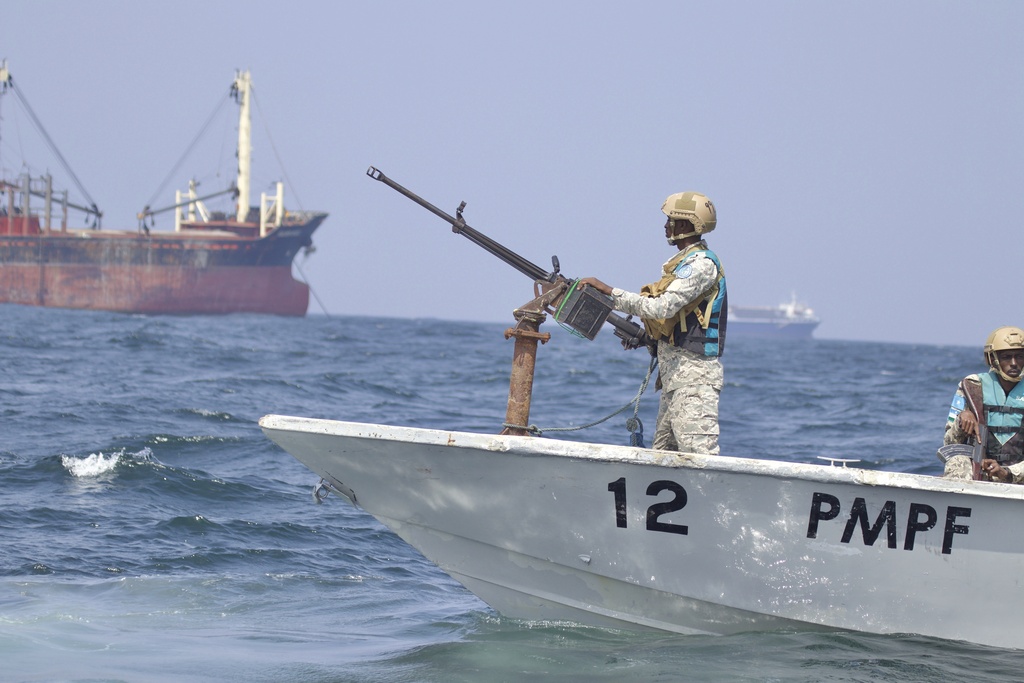Attacks Fuel Fears of Return of Somali Piracy, But Analysts Say Surge is Unlikely
ADF STAFF
In early December, a Maltese-flagged merchant ship was hijacked off the coast of Somalia. It is believed to be the first successful attack on a merchant ship in the region since 2017.
Gerry Northwood, a former captain who commanded warships in the region with Britain’s Royal Navy, told Reuters the attacks indicate that pirates “think they have a permissive environment ashore.”
Somalia’s nearly 3,400-kilometer coastline, which includes the Gulf of Aden, the Guardafui Channel and Western Indian Ocean waters, is extremely difficult to police.
“Add to which naval patrols are thin on the ground and security on ships is almost non-existent,” Northwood, a consultant with maritime security company Mast, told Reuters.
The December attack followed an incident in November when pirates attacked a Liberian-flagged tanker carrying phosphoric acid off Yemen in the Gulf of Aden. Soon after the five armed pirates were seized by a United States Navy warship, a missile fired from Yemen splashed into the gulf about 18 kilometers from the warship.
The Liberian ship’s crew of 22 sailors from Bulgaria, Georgia, India, the Philippines, Russia, Turkey and Vietnam was unharmed, the Associated Press reported.
The maritime security firm Dryad Global reported that attacks may be done in coordination with the extremist group al-Shabaab and said the group may receive 30% of ransom proceeds. Dryad warned of a growing alliance between Somali terrorists and Houthi rebels in Yemen. “Al-Shabaab’s persistence, its evolving tactics with pirate alliances, and the broader regional challenges involving Houthi activities contribute to a complex and dynamic security situation in the Horn of Africa,” Dryad reported.
Piracy reached its peak in Somalia in 2011 when Somali pirates launched 212 attacks, but only five attacks were recorded between 2017 and 2020.
Ali Mohamed Omar, Somalia’s state minister of Foreign Affairs and International Cooperation, said the recent attacks are considered “standalone” occurrences.
While these attacks highlight the potentially reemerging threat of piracy in Somali waters, Peter Viggo Jakobsen and Troels Burchall Henningsen, both associate professors at the Royal Danish Defense College, believe a major increase in Somali piracy is unlikely.
In a piece for The Conversation, a nonprofit news organization, Jakobsen and Henningsen argued that measures put in place to stem Somali piracy are mostly still in practice.
Those measures included:
Anti-piracy operations conducted by international navies; while NATO terminated its operations in 2016, a European Union mission and a United States-led coalition remain in place.
Instituting protection measures, such as the use of armed guards by flag states and shipping owners; however, Jakobsen and Henningsen noted, the number of ships carrying armed guards has dropped significantly.
Increased international efforts to build the capacity of Somalia and other countries to patrol their national waters.
Establishing a legal framework enabling pirate prosecution and imprisonment, including the ability to imprison pirates regionally and in Somalia.
“Successful prosecution and imprisonment would signal to other pirates that piracy remains an unprofitable undertaking off the Somali coast,” Jakobsen and Henningsen wrote.


Comments are closed.